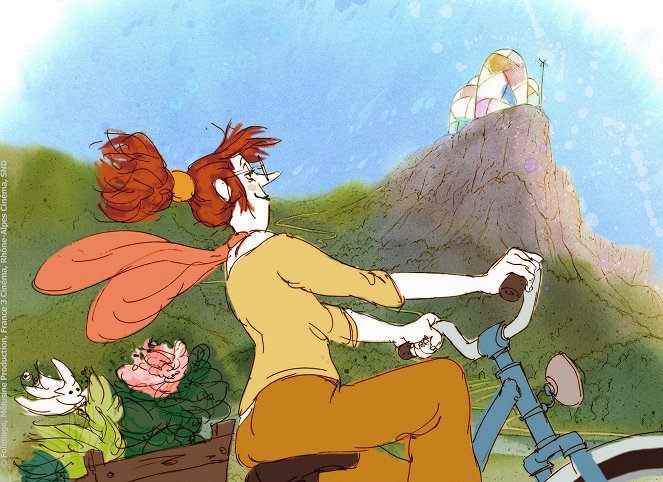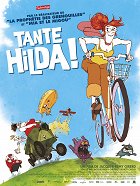Zdjęcia:
Benoît RazyMuzyka:
Serge BessetObsada:
Sabine Azéma, Josiane Balasko, François Morel, Bruno Lochet, Serguei Vladimirov, Gilles Détroit, Bernard Bouillon, Christian Taponard, Line WibleOpisy(1)
Hilda is a cheerful and quirky woman. She loves plants and devotes all her time to growing them. She has a huge greenhouse full of precious and unique plants. But the scientists in a nearby biochemical lab make a breakthrough discovery. They are able to genetically engineer a plant called Attilem that has many uses in all various aspects of human life and no one seems to notice the dangers that it brings. As Attilem gradually occupies the Earth, Hilda's greenhouse becomes the only remaining oasis. Hilda soon sees the danger the world is in but she must defend her beliefs and eventually fight to save the day in a thrilling battle that will fundamentally change her life. César-nominated director Jacques-Rémy Girerd who has worked on films such as Mia et le Migou (Mia and the Migoo, 2008) and Une vie de chat (A Cat in Paris, 2010) introduces an adventure film with an ecological message and critique of capitalism (ruthless greed). His latest film has a bold narrative, fresh visual side and a very live animation. It will surely find its audiences among children as well as adults. (Anifilm)
(więcej)Recenzje (1)
Despite its wonderful playfulness and impishness, this animated film doesn’t conceal the fact that, instead of children, it is targeted at young environmentalist parents and hipsters, even though it is screened in the children’s sections at festivals. In the context of the film, the flowing “vintage” animation with fidgety lines and hand-colouring comes across like a telling quirk aimed at evoking sentiment for authentic non-series products. The inclination towards adult viewers is further confirmed by the caricature-style drawing, which delights in emphasising bodily proportions. The animation, where emphasis is placed on the expressive movement of the given parts, is reminiscent of the animated films based on the Werner comic-book franchise by the comics author Brösel. After all, the vegetarian animated movie and the beer-soaked German comic-book series have a lot in common and the two works essentially differ only in the particular lifestyles that they glorify. Whereas Brösel manages to imbue his characters with a sizable portion of self-irony and satire, Aunt Hilda does an exemplary job of keeping the agitprop flowing.
()
Galeria (17)
Photo © Agora Films

